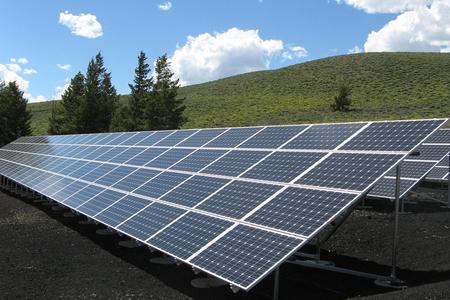
While solar energy is gaining popularity as an alternative energy source, current solar panels in the market are grossly inefficient with efficiency ranging from 10-15%. Now however, researchers have achieved new height of solar cell efficiency with 34.5%. This essentially means 34.5% of light falling on the panes is converted to electricity. Previous record was at 24% held by Alta device of USA.
The feat was achieved by Dr Mark Keevers and Professor Martin Green, Senior Research Fellow and Director, respectively, of UNSW’s Australian Centre for Advanced Photovoltaics. They used a 28cm2 four junction mini module, embedded in a prism. The setup splits light into four bands and uses the four junction receiver squeezes more energy out of it.
“This encouraging result shows that there are still advances to come in photovoltaics research to make solar cells even more efficient,” said Keevers. “Extracting more energy from every beam of sunlight is critical to reducing the cost of electricity generated by solar cells as it lowers the investment needed, and delivering payback faster.”
This record pertains to energy efficiency of unfocused light. We can enhance efficiency by focusing light or concentrating light, known as concentrator photovoltaics. The record of this too is held by the same team with a rate over 40% by focusing light using mirrors.
However, these multi junction devices are a long way from making it to our homes and offices. They are by design, more complex and hence, require more effort in manufacturing and are expensive. The team is working on ways to bring down the costs to promote its adoption.
This is good news for renewable energy advocates, what remains is to put it into mass production and bring down the costs. Meanwhile, more research is to be done achieve new levels of efficiency for a green future.




